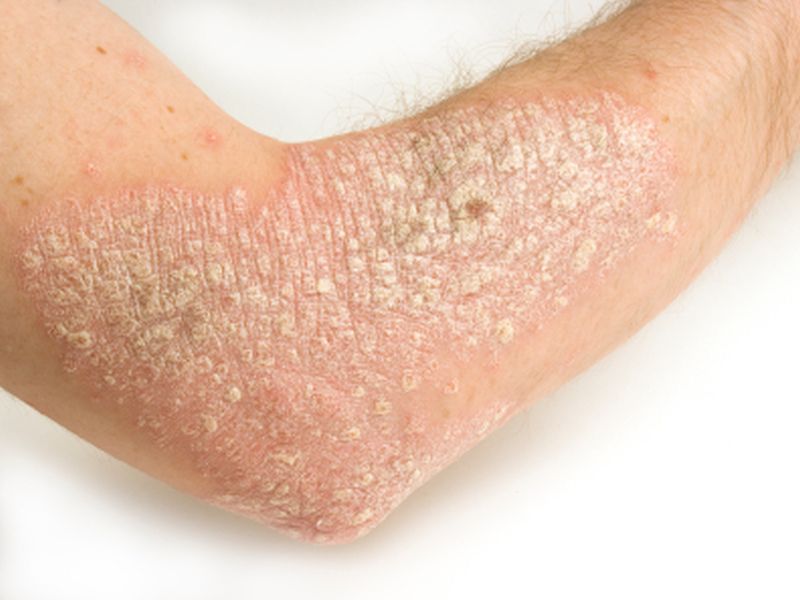Get Healthy!

- Cara Roberts Murez
- Posted October 27, 2020
Psoriasis Meds Don't Raise Risk of Severe COVID-19: Study
Researchers in the United Kingdom have reassuring news for people with psoriasis based on the first analysis of a global registry of COVID-19 patients who also have the skin disease.
Moderate-to-severe cases of psoriasis are treated with drugs that suppress the immune system. This analysis of the international PsoProtect registry found that more than 90% of psoriasis patients survive infection with the new coronavirus.
"We can reassure our patients that the survival for people with psoriasis is high, and the risk factors for psoriasis patients are similar to those of the general population," said Dr. Satveer Mahil, a consultant dermatologist at St. John's Institute of Dermatology in London, who co-leads the registry.
The registry was established to understand how psoriasis and the medications used to treat it affect severity of COVID-19, according to a news release from the U.K.'s National Institute for Health Research.
Psoriasis is a skin disease believed to be related to an immune system problem. It causes red patches and flaky plaques of skin that are covered with silvery scales.
The findings were recently published online in the Journal of Allergy and Clinical Immunology.
For the study, the researchers analyzed 374 cases from 25 countries in which psoriasis patients had COVID-19 between March and July 2020. About 71% were taking biologic medications and 18% were taking traditional immunosuppressants. About 93% fully recovered from COVID-19, 21% were hospitalized and 2% died.
Helen McAteer is chief executive of the Psoriasis Association. She said, "From the beginning of the pandemic, we understood the importance of being proactive in order to address the many concerns expressed by people who are living with psoriasis. The PsoProtect registry is vital in helping us understand more about the interactions between psoriasis, its treatments and COVID-19 infection so patients can make the most informed choices about their care and treatment at this challenging time."
More information
To learn more about psoriasis, visit the U.S. National Library of Medicine.
SOURCE: National Institute for Health Research, news release, Oct. 20, 2020






